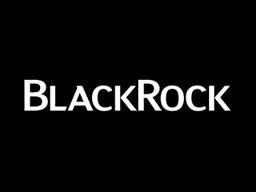Financial service companies experience constant change due to new regulation, political uncertainty, and market consolidation. After the financial crisis of 2008, global leaders implemented various regulations like the Financial Stability Board, or FSB. These regulations have brought financial stability to financial institutions across the globe.
With improving economies around the world, the outlook for the financial industry is also improving. In this article, I have discussed three companies that are taking advantage of the recovering economies with different strategies like acquisition, cost reduction, and finding benefit in regulation.
New acquisition brings strong growth potential from Europe

BlackRock, Inc. (NYSE:BLK)’s risk management system, Aladdin, posted strong revenue growth in the first quarter. This system provides an investment platform to clients all over the world. The company’s Aladdin business contributed around 70% of BlackRock solutions’ segment revenue of $518 million in 2012. This platform manages around $14 trillion of assets worldwide. This system has been a star performer for BlackRock solutions and achieved am annual growth rate of 17% in revenue over the past five years. It received five new assignments in the first quarter, and therefore it will add $1.3 trillion worth of assets to Aladdin’s $14 trillion assets. The whole segment received seven new assignments, and the revenue from BlackRock solutions will increase from $518 million in 2012 to $553 million in 2013.
Good earnings expected for shareholders
Lazard Ltd (NYSE:LAZ) announced a cost saving program last year with the goal of reducing costs by $125 million annually. About $85 million of savings will come from staff reductions and $40 million from the reduction in other expenses like technology and travel. The company expects 67% of savings will come during 2013, and its full impact will be reflected in 2014. At this point it has achieved $85 million of savings, and by 2014 total savings will amount to $140 million, compared to the original target of $125 million. This additional saving will help the company to reach its operating margin target of around 21% in this year and 25% in the next year.
The company is continuously following a strategy of returning capital to shareholders in the form of share repurchases and its dividend program. During first quarter, the company repurchased 831,157 shares for a total cost of $30 million. This repurchase was part of an authorized repurchase program of $200 million announced last year. It will complete the remaining repurchase of $124 million worth of shares by December 2014. Due to this, the outstanding shares will decrease from 135 million in 2012 to 132 million in 2013. Additionally, the company distributed its quarterly dividend of $0.25 per share in May, rising 25% year-over-year. The company had total cash of $650 million at the end of first quarter, which will help it to continue its buyback program.
Growth in revenue expected from European operations
American Express Company (NYSE:AXP) will benefit from an announcement by the European Commission, or EC regarding legislation of single Euro payments area, or SEPA. SEPA is the region where citizens are able to make or receive payment in Euros, and fees received by the card issuing bank are expected to reduce due to regulation. American Express expects the SEPA legislation will exclude it. This expectation comes after similar exclusion from Australian regulation. American Express has a three party network framework in comparison to companies like Visa Inc (NYSE:V) and Mastercard Inc (NYSE:MA), which follow a four party network. The three party framework eliminates the bank’s involvement in fixating fees. Australia made its legislation for four party networks. Thus, it excluded American Express.
Since both the Australian and European card markets are similar, EC will most likely exclude American Express Company (NYSE:AXP) in the regulation. The regulation will reduce credit interchange fees by around 75%. This will cause European issuers to shift their credit card portfolios to American Express due for higher margins. If MasterCard loses 1% market share, it will lose revenue of $22 million annually, which can go to American Express.
American Express Company (NYSE:AXP) generates 50% of revenue from the U.S. The company targets high spending affluent individuals with income of $97,000 per year. Thus, an American Express cardholder’s income is 33% more than a non-cardholder. Due to high income, the average expenditure per American Express card in the U.S. is $15,000, while it is $1,000 per card for Visa cardholders. Due to targeting affluent customers, its default risk also reduces.

